Ed Yong in The Atlantic:
 This time last year, the United States seemed stuck on a COVID-19 plateau. Although 1,300 Americans were dying from the disease every day, states had begun to reopen in a patchwork fashion, and an anxious nation was looking ahead to an uncertain summer. Twelve months later, the situation is very different. Cases are falling quickly. About half as many people are dying every day. Several vaccines were developed faster than experts had dared to predict, and proved to be more effective than they had dared to hope. Despite a shaky start, the vaccination campaign has been successful, and almost half of the country has received at least one shot, including 85 percent of people older than 65. As the pandemic rages on elsewhere in the world, the U.S. is eyeing a summer of reconnection and rejuvenation.
This time last year, the United States seemed stuck on a COVID-19 plateau. Although 1,300 Americans were dying from the disease every day, states had begun to reopen in a patchwork fashion, and an anxious nation was looking ahead to an uncertain summer. Twelve months later, the situation is very different. Cases are falling quickly. About half as many people are dying every day. Several vaccines were developed faster than experts had dared to predict, and proved to be more effective than they had dared to hope. Despite a shaky start, the vaccination campaign has been successful, and almost half of the country has received at least one shot, including 85 percent of people older than 65. As the pandemic rages on elsewhere in the world, the U.S. is eyeing a summer of reconnection and rejuvenation.
But there is another crucial difference between May 2020 and May 2021: People have now lived through 14 months of pandemic life. Millions have endured a year of grief, anxiety, isolation, and rolling trauma. Some will recover uneventfully, but for others, the quiet moments after adrenaline fades and normalcy resumes may be unexpectedly punishing. When they finally get a chance to exhale, their breaths may emerge as sighs.
More here.

 Last Saturday was Nakba Day, which commemorates the 700,000 Palestinians who were expelled by Israel – or who fled in fear – during the country’s founding in 1948. The commemoration had special resonance this year, since it was Israel’s impending expulsion of six Palestinian families from the East Jerusalem neighbourhood of Sheikh Jarrah that
Last Saturday was Nakba Day, which commemorates the 700,000 Palestinians who were expelled by Israel – or who fled in fear – during the country’s founding in 1948. The commemoration had special resonance this year, since it was Israel’s impending expulsion of six Palestinian families from the East Jerusalem neighbourhood of Sheikh Jarrah that 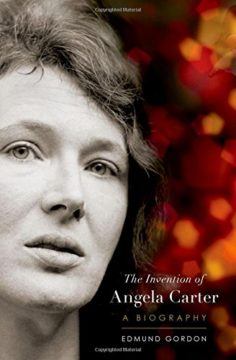 I would imagine that anyone approaching Edmund Gordon’s comprehensive biography, The Invention of Angela Carter, has a memorable “first time” with Carter. When it comes to cult figures of the intelligentsia, the story of the first time is practically de rigueur. Gordon himself mentions his own in his epilogue. During a post-university year in Berlin, he came upon a secondhand copy of The Magic Toyshop, which Carter had described to her editor in 1966 as a “Gothic melodrama about a sort of South Suburban bluebeard toymaker & his household.” A writer Gordon admired, Ali Smith (an iconoclast of her own order), had spoken highly of Carter, whose reputation he’d previously thought had something “off-putting” about it—“a sense, perhaps, that she was just for girls.” Nonetheless, he bought the novel and “tore” through it “in a few intoxicated hours, stunned by the fearless quality of the imagination on display and by the luminous beauty of the prose.”
I would imagine that anyone approaching Edmund Gordon’s comprehensive biography, The Invention of Angela Carter, has a memorable “first time” with Carter. When it comes to cult figures of the intelligentsia, the story of the first time is practically de rigueur. Gordon himself mentions his own in his epilogue. During a post-university year in Berlin, he came upon a secondhand copy of The Magic Toyshop, which Carter had described to her editor in 1966 as a “Gothic melodrama about a sort of South Suburban bluebeard toymaker & his household.” A writer Gordon admired, Ali Smith (an iconoclast of her own order), had spoken highly of Carter, whose reputation he’d previously thought had something “off-putting” about it—“a sense, perhaps, that she was just for girls.” Nonetheless, he bought the novel and “tore” through it “in a few intoxicated hours, stunned by the fearless quality of the imagination on display and by the luminous beauty of the prose.” As a tormented young anarchist pacifist pining for radical deliverance while cooped up at home with his parents in Berlin during the First World War, Gershom Scholem felt absolutely committed to one cause: Zionism. The only problem, he acknowledged in his journal, was that Zionists had not yet defined the contents of their ideology. As far as Scholem was concerned, Zionism had no political implications. It did not necessitate an oceanic ingathering of the Jewish people from the diaspora. There was no imperative to farm the Holy Land. The movement, in the eyes of the future pioneering scholar of kabbalah, was a humanistic, anti-bourgeois endeavour that probably required a commitment to living in Palestine or thereabouts. But it did not require the acquisition of sovereign control over territory, let alone taking possession of land belonging to the Arab peoples resident in the country.
As a tormented young anarchist pacifist pining for radical deliverance while cooped up at home with his parents in Berlin during the First World War, Gershom Scholem felt absolutely committed to one cause: Zionism. The only problem, he acknowledged in his journal, was that Zionists had not yet defined the contents of their ideology. As far as Scholem was concerned, Zionism had no political implications. It did not necessitate an oceanic ingathering of the Jewish people from the diaspora. There was no imperative to farm the Holy Land. The movement, in the eyes of the future pioneering scholar of kabbalah, was a humanistic, anti-bourgeois endeavour that probably required a commitment to living in Palestine or thereabouts. But it did not require the acquisition of sovereign control over territory, let alone taking possession of land belonging to the Arab peoples resident in the country. Leading Indian authors Pankaj Mishra and
Leading Indian authors Pankaj Mishra and 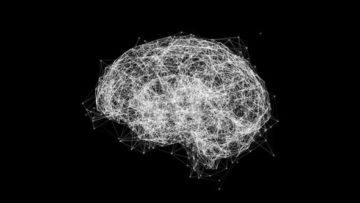 Since the modern era of research on autism began in the 1980s, questions about social cognition and social brain development have been of central interest to researchers. This year marks the 20th anniversary of the first annual meeting of the
Since the modern era of research on autism began in the 1980s, questions about social cognition and social brain development have been of central interest to researchers. This year marks the 20th anniversary of the first annual meeting of the 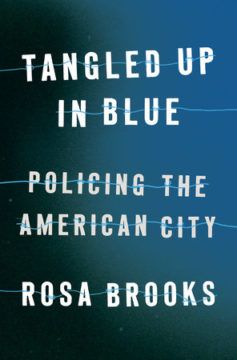 It’s hard to understand the culture of policing in America from the outside.
It’s hard to understand the culture of policing in America from the outside.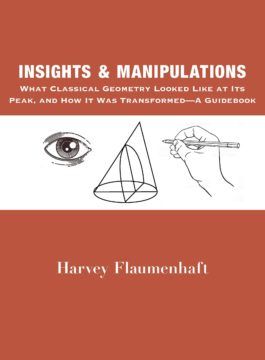 One pillar of the modern world was the project to transform science from a discipline for contemplating nature into a tool for mastering it. Queen among the new sciences was mathematical physics, made possible by a corresponding transformation of mathematics. Ancient mathematicians, said René Descartes, had misunderstood their subject. They offered a procession of dazzling spectacles, but mathematics properly understood is not the presentation of beautiful chance discoveries. It must instead provide a systematic method for solving problems.
One pillar of the modern world was the project to transform science from a discipline for contemplating nature into a tool for mastering it. Queen among the new sciences was mathematical physics, made possible by a corresponding transformation of mathematics. Ancient mathematicians, said René Descartes, had misunderstood their subject. They offered a procession of dazzling spectacles, but mathematics properly understood is not the presentation of beautiful chance discoveries. It must instead provide a systematic method for solving problems.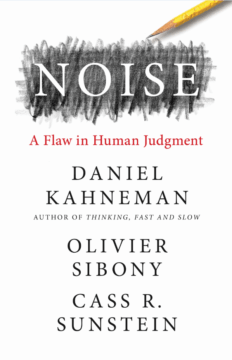 In a study of the effectiveness of putting calorie counts on menu items, consumers were more likely to make lower-calorie choices if the labels were placed to the left of the food item rather than the right.
In a study of the effectiveness of putting calorie counts on menu items, consumers were more likely to make lower-calorie choices if the labels were placed to the left of the food item rather than the right. France’s literary institutions have long struggled with a diversity problem. Though France doesn’t collect statistics on race and ethnicity, a majority of top editors and authors have historically been white. Its literary awards heavily favor men: Since France’s top literature prize, the Prix Goncourt, began in 1903, only 12 women have won. The integration of marginalized literary voices, especially those of second-generation French or people of color, has come in fits and starts. Until the 1990s, literature written by children of immigrant parents of Maghrebis descent was categorized using a pejorative term for Arab. The publication of a 1999 novel by Rachid Djaïdani, which described daily life in France’s housing projects where many immigrants live, was a landmark in breaking the mold. Another was the publication in 2007 of a controversial literary collection by second-generation French writers about their complex relationship with France.
France’s literary institutions have long struggled with a diversity problem. Though France doesn’t collect statistics on race and ethnicity, a majority of top editors and authors have historically been white. Its literary awards heavily favor men: Since France’s top literature prize, the Prix Goncourt, began in 1903, only 12 women have won. The integration of marginalized literary voices, especially those of second-generation French or people of color, has come in fits and starts. Until the 1990s, literature written by children of immigrant parents of Maghrebis descent was categorized using a pejorative term for Arab. The publication of a 1999 novel by Rachid Djaïdani, which described daily life in France’s housing projects where many immigrants live, was a landmark in breaking the mold. Another was the publication in 2007 of a controversial literary collection by second-generation French writers about their complex relationship with France. T
T THE CHARACTERS
THE CHARACTERS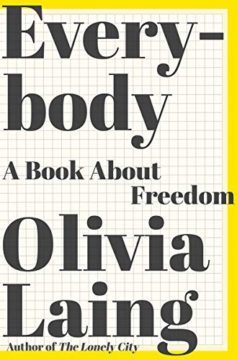 “Everybody” ’s central character is the Viennese psychoanalyst
“Everybody” ’s central character is the Viennese psychoanalyst 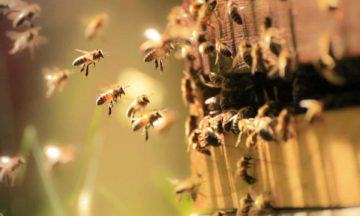 An insect’s brain is organised completely differently from a mammal’s. It is also
An insect’s brain is organised completely differently from a mammal’s. It is also